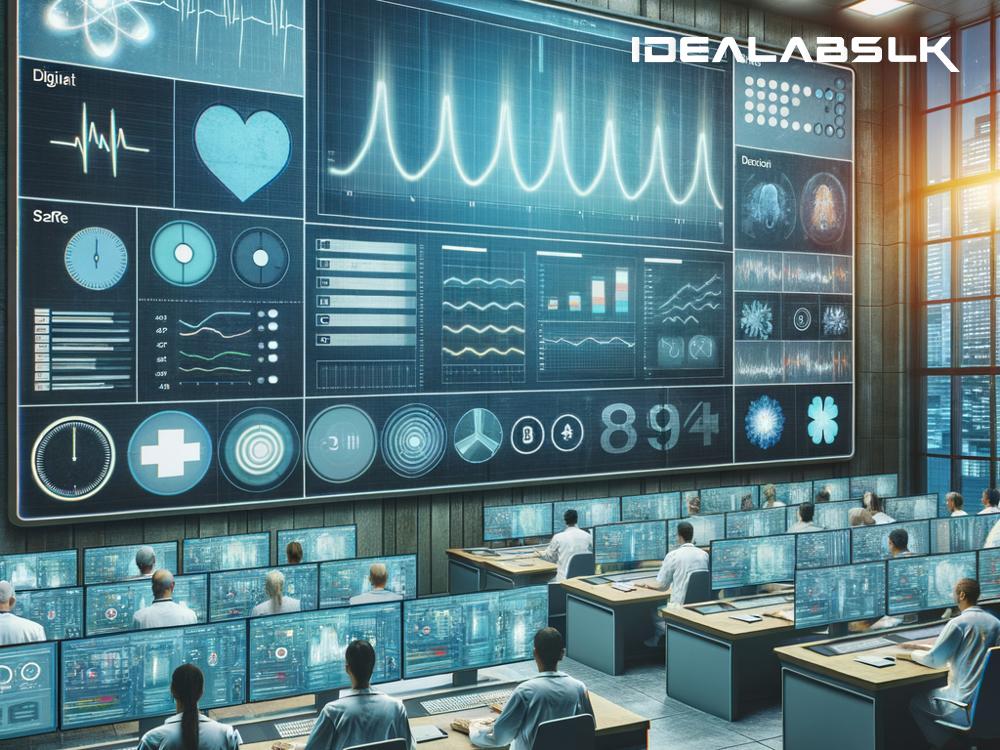How AI-Driven Predictive Analytics Are Transforming Hospital Operations and Reducing Costs
Healthcare systems around the world are continuously seeking efficient ways to improve patient care while reducing operational costs. One technology playing a pivotal role in achieving this balance is Artificial Intelligence (AI), particularly through its capability for predictive analytics. This innovative approach is transforming hospital operations from a reactive to a proactive model, changing the game in how hospitals serve patients and manage resources. Let’s explore how AI-driven predictive analytics are making significant impacts in hospitals.
What is AI-Driven Predictive Analytics?
Before diving into its impacts, it’s essential to understand what predictive analytics entails. In simple terms, predictive analytics uses data, statistical algorithms, and machine learning techniques to identify the likelihood of future outcomes based on historical data. When AI drives this process, it can analyze vast amounts of data at an incredible speed, learning and improving its predictions over time.
Enhancing Patient Care
The primary goal of any hospital is to provide excellent patient care. Predictive analytics helps achieve this by forecasting patients’ health outcomes. For example, AI can analyze data from various patients' records to identify those at high risk of developing certain conditions, like heart disease or diabetes, before they occur. Hospitals can then intervene earlier, provide preventative care, and significantly improve the chance of positive health outcomes.
Further, AI can predict patient inflow in emergency departments, helping hospitals prepare resources and staff accordingly. This means when there's an unexpected surge, the hospital can manage it more effectively, ensuring every patient receives timely care.
Streamlining Hospital Operations
Hospital operations encompass a wide array of activities, from managing bed occupancy to scheduling surgeries and maintaining equipment. Predictive analytics can greatly streamline these processes. For example, it can forecast the daily or weekly demand for hospital beds, allowing for more efficient use of resources. Similarly, it can predict the maintenance needs for medical equipment, enabling proactive servicing and reducing downtime.
These operational improvements not only enhance the patient experience by reducing wait times and ensuring the availability of critical services but also significantly cut down on wasteful expenditures.
Cutting Down Costs
A considerable benefit of predictive analytics is its ability to reduce hospital costs. By predicting patient admissions, hospitals can better allocate staff, which can cut down on overtime costs and reduce burnout among healthcare workers. Additionally, by identifying patients at risk of readmission, hospitals can provide targeted follow-up care to prevent costly repeat visits. This not only saves money but also improves patient satisfaction and outcomes.
Moreover, predictive analytics can help in optimizing the purchasing and use of medical supplies. By accurately forecasting demand, hospitals can avoid overstocking or running out of essential items, thus managing budgets more effectively.
Challenges and Considerations
While the benefits are substantial, the implementation of AI-driven predictive analytics is not without its challenges. Concerns about patient data privacy, the need for substantial initial investment, and the requirement for staff training are among the top considerations hospitals face. However, with proper guidelines, these issues can be addressed, paving the way for a more efficient and cost-effective healthcare system.
The Future is Bright
The integration of AI-driven predictive analytics in hospital operations is still in its early stages, but the potential is enormous. As technology advances and becomes more accessible, we can expect even more innovative uses to emerge, further transforming healthcare. The future might bring AI-powered personal health assistants or even more precise tools for disease prediction and prevention.
Conclusion
AI-driven predictive analytics is revolutionizing hospital operations, making healthcare more proactive, efficient, and cost-effective. By predicting patient needs and streamlining operations, hospitals can provide better care while keeping costs in check. As technology continues to evolve, the possibilities for further advancements in healthcare are limitless, promising a future where hospitals not only react to health issues but anticipate and prevent them.
Embracing AI in healthcare operations is not just a step towards improving hospital management; it's a leap towards achieving a healthier society with accessible, high-quality care for all. The journey is just beginning, and it's one that could reshape the landscape of healthcare as we know it.

